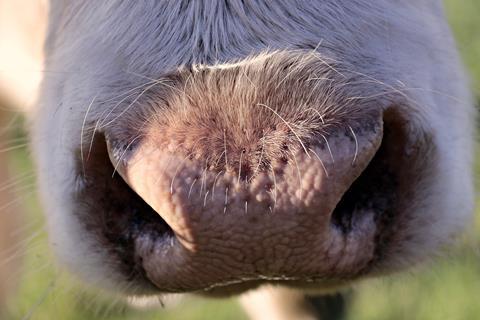Conventional farms in Egypt have almost four times as many antibiotic-resistant bacteria as organic farms, a new study has revealed.
The study, which appears in Letters in Microbiology, an Applied Microbiology International publication, examined samples from animal farms in Egypt and tested them for the presence of three types of bacterial superbugs.

Nada ElSayed PhD, who sponsored and carried out the study, found that conventional farms, which usually use a lot of antibiotics, had almost four times higher levels of bacterial superbugs compared to an organic farm, suggesting that the heavy use of antibiotics in traditional farming may be contributing to the rise of antibiotic-resistant (AR) bacteria.
The authors, from the University of Alexandria, said the first ever case of antimicrobial-resistant bacteria was discovered in the mid-twentieth century and since then, increasingly more of them have been found worldwide, until they are now considered one of the leading causes of death globally.
“AR bacteria have been extensively studied in human medicine, but less attention has been paid to studying them in animal farming,” Nada ElSayed said.
“The overuse of antibiotics in animal farming might be a major contributor to the rise of AR bacteria. That is why we aimed to compare the rates of AR bacteria in two conditions, in conventional animal farming, where antibiotics are heavily, and in many instances needlessly, used, and the second is organic animal farming, where antibiotics are exclusively used to treat sick animals.”
Sampling farms
Nada collected samples from soil, animal excreta and wastewater, from seven conventional farms and one organic farm located in four different cities in Egypt.
“We used these samples to look for three kinds of AR bacteria classified as ‘serious threats’ to public health,” she said.
“The study found that conventional farms had an overall higher level of AR bacteria than organic farms. It also found two kinds of those ‘serious AR threats’ exclusively in conventional farms.
“Conventional poultry farms, in particular, had higher rates of these bacteria than cattle farms, which may be due to the heavier antibiotic use in poultry than in cattle. The study also found alarmingly high rates of bacteria resistant to colistin in conventional poultry farms, knowing that colistin is an antibiotic used as a last resort to treat serious infections in humans that do not respond to other antibiotics.”
Nada said this high level of AR bacteria in conventional farms suggests that heavy antibiotic use in animal farming is having an adverse impact.
“Unfortunately, AR bacteria that happen on animal farms do not stay on animal farms. They can further spread to the food chain, humans, and the environment, causing serious untreatable infections in humans,” she said.
It would be wise to continue monitoring AR bacteria on farms to aid in decision-making and policy changes to control the use of antibiotics in animal farming, reduce the rates of AR bacteria in farms, and help prevent their spread to humans and the environment,” she said.







No comments yet